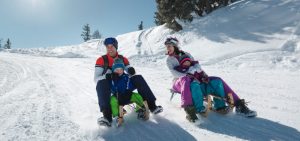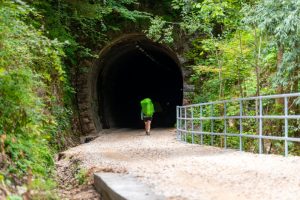Igor Žiljak Appointed New General Director of Olympic Center Jahorina with Ambitious Plans
Igor Žiljak has become the new General Director of the Olympic Center Jahorina in Bosnia and Herzegovina, bringing ambitious plans for the development of this premier ski resort in Europe. With a career marked by extensive experience in managing ski resorts, Žiljak shares how his journey took him from Sljeme to Beijing, and what motivated him to embrace this exciting professional challenge.
Sljeme is where his career began, but Jahorina captured his heart at first sight – says Žiljak, a seasoned expert in ski resort management, recently appointed as the General Director of one of the most popular ski resorts in the Balkans. Beyond winter, Jahorina thrives in summer, attracting tourists escaping city heat to hike, cycle, and enjoy adventure activities such as zip-line and alpine coaster, suitable for the whole family.
“For children, we offer more than twenty summer attractions, truly remarkable ones. Among the most popular are the zip-line and alpine coaster – experiences loved by kids and adults alike. Our goal is to bring young people and families here, to disconnect from mobile phones, computers, and city noise, and reconnect with nature,” says Žiljak, speaking from the mountain peak, surrounded by breathtaking scenery. Since taking the leadership role, he has been continuously touring the resort, exploring opportunities for improvement.
“Being chosen as General Director is a great honor, and I gladly accepted the responsibility – challenges are my motivation. The summer season is ending with excellent results, while preparations for the winter season are already underway,” he adds, bringing Jahorina the benefit of his extensive experience in ski resort operations and maintenance.
From Zagreb to Beijing
Originally from Zagreb, Žiljak managed the Sljeme ski resort for many years, preparing slopes for prestigious FIS World Cup skiing events. His expertise gained international recognition, leading to an invitation from China. He spent three winters in Beijing, coordinating one of the world’s most complex artificial snowmaking systems as part of Winter Olympic Games preparations. “After that experience, it was time for new challenges,” Žiljak recalls calmly.
Plans for Jahorina
“I’ve never been the type to sit in an office – my career has been on the slopes, ensuring everything is perfectly prepared. This is exactly what I’ve been doing at Jahorina over the past two years. The plans are ambitious: to complete ongoing investments and expand development. I am especially pleased that Jahorina is already recognized in Croatia, and I am confident its true international potential is yet to come,” Žiljak explains.
“We expect a significant number of tourists from Croatia this winter, particularly from Dalmatia, Slavonia, and Zagreb. I am delighted that many are our regular visitors, and I hope to welcome even more this season,” he adds.
Jahorina features over 50 kilometers of ski slopes, including 20 kilometers equipped with night lighting for night skiing enthusiasts. While the winter season usually begins in December, it depends on weather conditions. “As natural snowfall decreases, successful ski seasons rely heavily on expert management of artificial snow systems. Thanks to this, we had over 100 skiing days last winter,” Žiljak notes.
Beginnings at Sljeme
Žiljak often recalls his formative years at Sljeme, which shaped him personally and professionally.
“My grandfather built Sljeme and served as director for 40 years, followed by my father. I started working there at 15 through a student service job. That’s when I first operated a snow groomer. After high school, I worked on ski lift installation across resorts in Italy and Austria, from Kranjska Gora to Rogla,” he remembers.
In 2001, Žiljak reached the top of Medvednica, managing machines, snow cannons, and slope conditions. Preparing Sljeme for the World Cup skiing events was especially challenging, as competitions cannot be postponed, regardless of weather or water availability.
His career then took him to China, training local teams in extreme winter conditions. “At the time, the Chinese didn’t know how to prepare slopes for major international competitions. We trained them, provided guidance, and today they work independently. In Beijing, we operated in minus 30 to minus 40 degrees, yet everything was under control,” Žiljak explains.
“What we have here at Jahorina is truly state of the art. This ski resort in Bosnia and Herzegovina can easily compete with the world’s top ski destinations,” he emphasizes. Žiljak moved to Bosnia and Herzegovina for his role, while his family remains in Croatia. With government support and collaboration from all partners, he aims to position Jahorina prominently on the world skiing map. This goal represents a new and powerful challenge that drives him forward.















